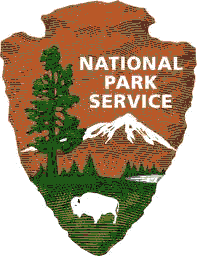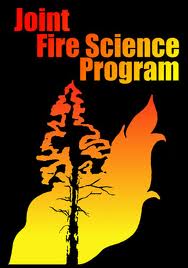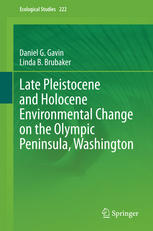|
We take a long-term view on ecological questions. Using paleorecords (especially from lake-sediment archives)
we reconstruct the environments of the late Pleistocene and Holocene to address the links between biodiversity,
climate, and disturbance processes (especially wildfire).
|
People in the lab [Lab alumni]
- Daniel Gavin - Professor
- Molly Burke - Ph.D. student.
- Niamh Houston – Masters Student. Vegetation communities, fuel accumulation, and fire hazard in recent burns and re-burns in western Oregon.
- Violet Wade - Laboratory and field technician 2025/2026
- Gracie Minnix - Laboratory and field technician 2025/2026
- William Bransford - ENVS thesis project: tree growth and climate.
- Connor Kirby - GIS/remote sensing technician 2025/2026
- Isabel McCormick - GIS/remote sensing technician 2025/2026
|
|
Recent publications [News archive]
|
|
Gavin, D.G., F.J. Rocchio, J.A. Hribljan, K.A. Heckman, E.M. Herring, J.R. Shaw, and D.J. Cooper. 2026. Holocene peat accumulation rate, hiatus events, and hummock development affected by climate, tephra deposition, and geomorphic setting. Progress in Physical Geography: Earth and Environment. in press.
|
|
Saban, C., and D.G. Gavin. 2025. Reconstruction of Holocene aridity, fire, and vegetation patterns using lake sediments from Dog Lake, Oregon, USA.. The Holocene.
|
|
Gavin, D.G., W. Struble, and M. Fonstad. 2024. Holocene lake sediments reveal alluvial fan history with links to climate, wildfire, and earthquakes. JGR Earth Surface.
|
|
Hendricks, L.B., G.Z. Anshari, and D.G. Gavin. 2024. Fire in the rainforest: A 3,200 year history of fire in a West Kalimantan, Indonesia tropical rainforests. Ecosphere 14:e4918.
|
|
Ruwaimana, M., G.Z. Anshari, and D.G. Gavin. 2024. Interplay of climate, fires, floods, and anthropogenic impacts on the peat formation and carbon dynamic of coastal and inland tropical peatlands in West Kalimantan, Indonesia. Ecosystems.
|
|
Gavin, D.G., P.J. Bartlein, and C. Mock. 2023. Historical archives reveal record rainfall and severe flooding in December 1867 resulting from an atmospheric river and snowmelt, Western Washington, USA. PLOS Climate.
|
|
|
Current funding from:

Northwest CASC (via PNW CESU)
 
Coeur d'Alene Tribe & Idaho DEQ
Past funding from:
|
|
|









